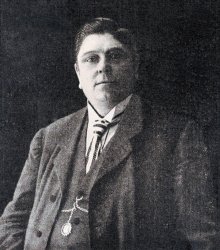In the 19th century and earlier, boys with beautiful singing voices sometimes had their voices preserved through extreme methods. The castrati were boy soprano singers who were forcibly castrated with the purpose of halting the natural voice changes that come as a boy matures into a man. These poor boys never had the chance to develop as ordinary people do. As a result of their lack of testosterone from an early age–in addition to their trademark, prepubescent voices–their joints retained childlike softness and their limbs often grew to unnatural lengths. Their appearance was sometimes described as “elf-like.”
But make no mistake. There was nothing magical about the castrati. They were the victims of some of the worst exploitation of child performers in history, and for a long time the cruelty they suffered was considered normal. Eventually, however, the Italian government and the Roman Catholic Church issued official bans on castrating for musical purposes.
But that wasn’t the end of the castrati’s pain. Castrati were banned from marrying, due to their inability to produce children (which was viewed as a social requirement for marriage in those times), and their abnormal and often startling appearances made it difficult for them to carry out normal lives and made them the subject of grievous public ridicule.
The last surviving castrato was Alessandro Moreschi. Once called “The Angel of Rome,” he is the only castrato ever to have produced solo recordings. What you’re about to hear is very eerie, I will warn you. What sounds like a young boy is, in fact, a middle aged man who lived a life partly trapped in boyhood. The weakness in his voice is partly the result of his age and waning health at the time of the recording and partly the result of a displaced vocal technique which was meant to cater specifically to the acoustics of the Sistine Chapel.
There’s a definite passion in Moreschi’s singing. It’s almost like a constant sobbing.
As you listen to the recording, keep in mind that the singer was a person who had no place in the world outside of music. Throughout his life, Moreschi was used as a tool–a living instrument. You can understand then, why he might sob; why his voice might waver as he sings.
This is a one-hundred year old recording of Alessandro Moreschi, the last living castrato:
